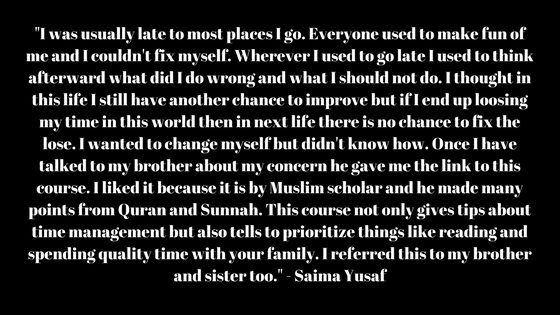4 Things About Barakah Every Muslim Must Know
Barakah is one of those Islamic concepts that many people know of, but don’t know much about. In this short article, I will explain four important things every Muslim must know about Barakah.
1. What is Barakah?
Barakah is often translated as Blessings in English. But that doesn’t tell us much about Barakah and what it actually is.
Barakah can be defined as spiritual blessings in any thing. It is the phenomenon of getting more done with less, in a manner that defies logic.
Three Examples of Barakah:
A) Getting five hours worth of work done in an hour
B) Writing an entire high quality book in a day
C) Money not getting finished despite spending a lot and giving a lot of charity
Barakah can occur in anything: money, time, family, work, results, dawah, writings, effects on others, food, and even life itself. A person who gets more done in a short 35 year lifespan than someone who lived 95 years had Barakah in his life.
Simply put, Barakah can’t be explained in a single English word. So we should stick to using the Arabic word. It is a type of Karamat (miracle) that Allah can grant to any believer.
2. How to get Barakah?
There is no single method of getting Barakah outlined in the Quran and Sunnah. But there are core Islamic concepts that definitely lead to Barakah for those who do it properly and sincerely. These can be listed as:
A) Earning and eating Halal only
B) Fulfilling the commands of Allah
C) Making dua for Barakah
D) Giving Charity
E) Praying Qiyam Al-Layl (Tahajjud)
The above have led to Barakah for thousands of Muslims throughout history. And when done properly with sincerity can lead to Barakah for you and me too.
3. If you have it, don’t question it
A lesser known aspect about Barakah is what to do when you experience it. Based on authentic Hadiths, we can conclude that if someone experiences Barakah, they shouldn’t tell question it. Doing so may lead to the Barakah disappearing.
The following two Hadiths are evidence of this:
Jabir reported that a person came to Allah’s Messenger (ﷺ) and asked for food. And he gave him half a load of barley, and the person and his wife and their guests kept on making use of it (as a food) until he weighed it (in order to find out the actual quantity, and it was no more). He came to Allah’s Prophet (ﷺ) (and informed him about it). He said, “Had you not weighed it, you would be eating out of it and it would have remained intact for you.” (Sahih Muslim 2281)
Jabir reported that Umm Malik used to send clarified butter in a small skin to the Messenger of Allah (ﷺ). Her sons would come to her and ask for seasoning when they had nothing with them and she would go to that (skin) in which she offered (clarified butter) to Allah’s Apostle (ﷺ), and she would find in that clarified butter and it kept providing her with seasoning for her household until she had (completely) squeezed it. She came to Allah’s Apostle (ﷺ) and (informed him about it). Thereupon, he (ﷺ) said, “Did you squeeze it?” She said, “Yes.” Thereupon he (ﷺ) said, “If you had left it in that very state, it would have kept on providing you (the clarified butter) without ending.” (Sahih Muslim 2280)
In both of the above hadiths, the Barakah only ended when the individual questioned how it was happening by inspecting it. So if you experience Barakah, don’t question how it is happening. What should you do instead? Read on!
4. Express gratitude to Allah for it
“And [remember] when your Lord proclaimed, If you are grateful, I will surely increase you [in favor]; but if you are ungrateful, indeed, My punishment is severe.” (Surah Ibraheem 14:7)
The key to successful living is an attitude of gratitude. If you experience Barakah in anything, then express gratitude to Allah for it and don’t dwell on how it is happening. Accept it as a gift from Allah and try your best to use it in a way that is pleasing to Allah.
The most basic way to show gratitude is to say Alhamdulillah (All Praise is for Allah) and to use it to earn Allah’s pleasure. But for really amazing occasions of Barakah, we should make Sajdah Shukr (prostration of gratitude). This is done by immediately going into Sajdah and thanking Allah for His Blessings on you.
So there it is, four key points about Barakah that every Muslim must know. We end by asking Allah to put Barakah in this article, this website, these ebooks and all our efforts. Ameen!
Want to learn more about Barakah?
Read our bestselling ebook: Getting The Barakah!
1000s of readers were transformed by it, now it is your turn!
Click the image below to purchase it!











